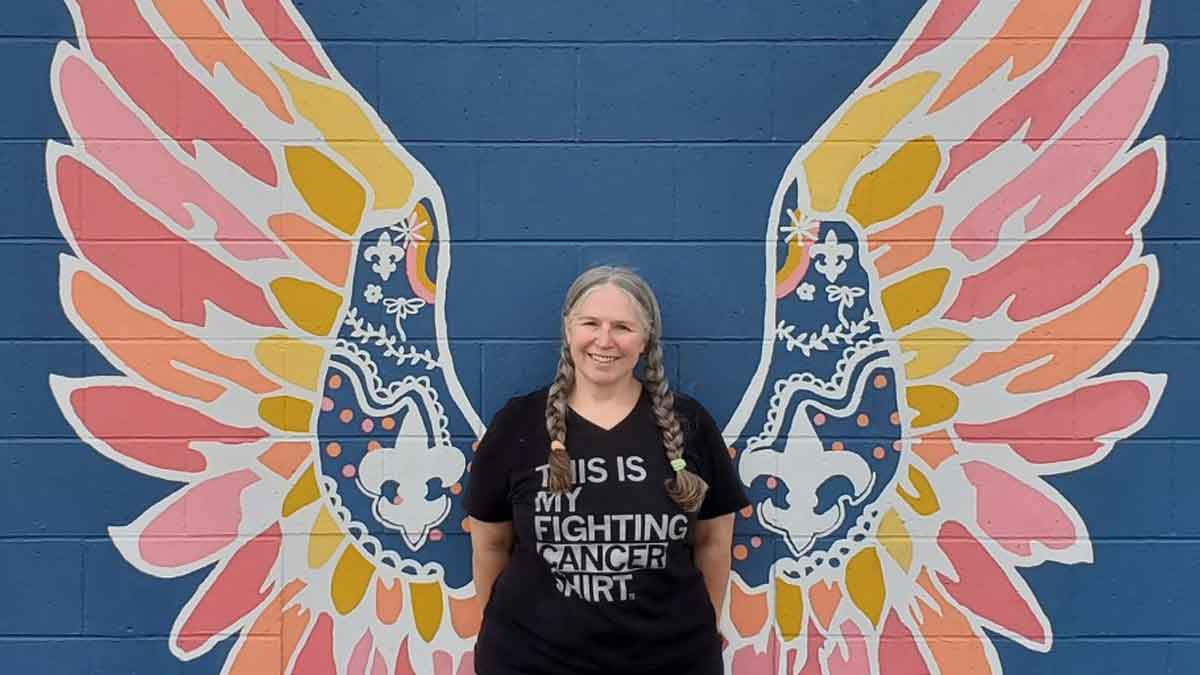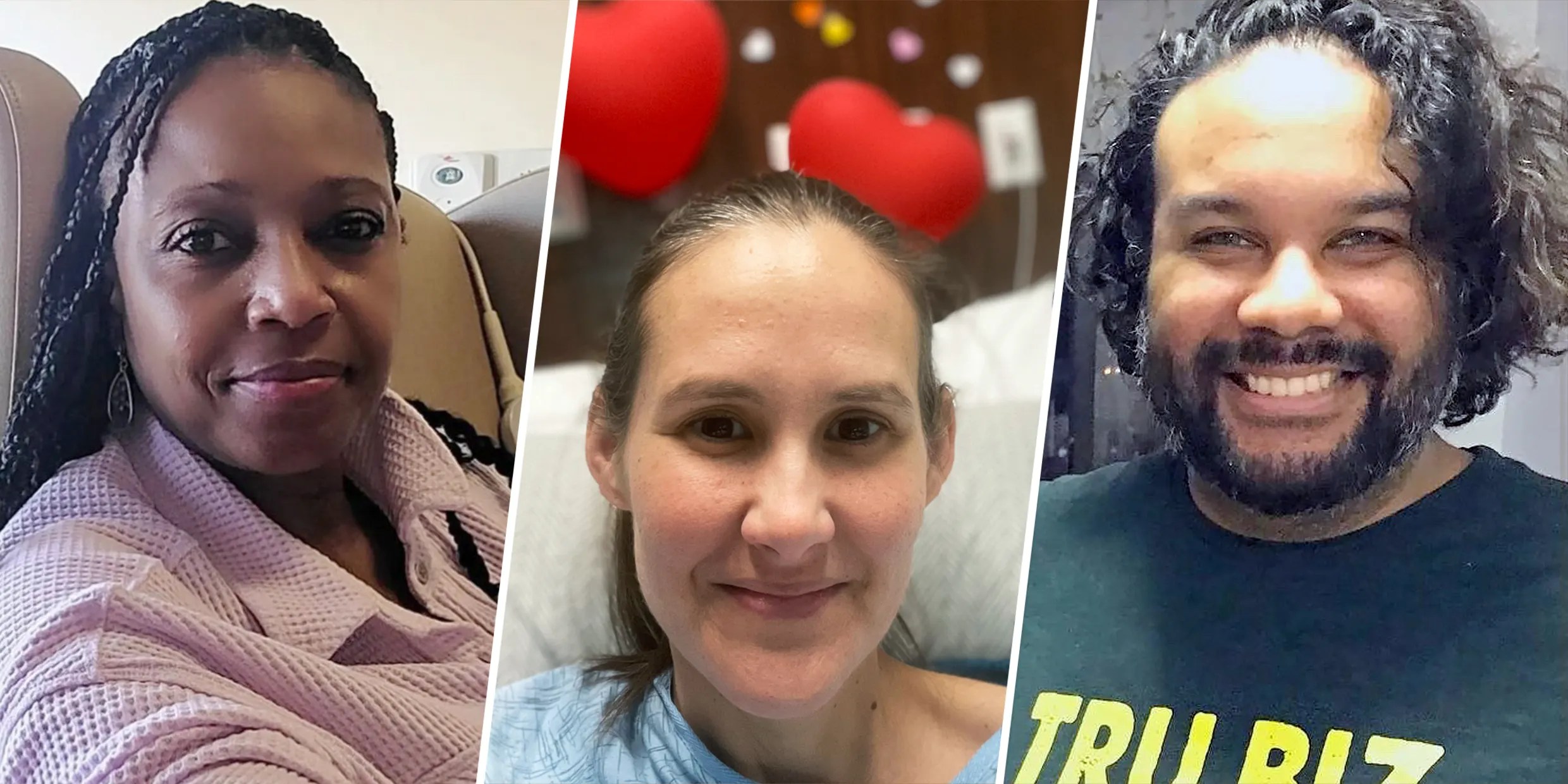
On National Cancer Survivors Day, two women who overcame this difficult disease, are sharing the real reason behind their recovery.
For two-time cancer survivor Teresa Giannelli, a visit to a chiropractor saved her life, as she says she never imagined the disease would come into her life more than once.
Giannelli, 60, survived thyroid cancer due to prompt detection and treatment but when she was in remission for more than 3 years, a visit to the chiropractor gave her an unexpected diagnosis.
We've got the news you need to know to start your day. Sign up for the First & 4Most morning newsletter — delivered to your inbox daily. >Sign up here.
"After visiting the chiropractor, the doctor did some exams and told me I had multiple myeloma," Giannelli says. "I had never heard that word in my entire life."
Giannelli says that at the time, she couldn't understand how a chiropractor was giving her such news, a doctor who doesn't specialize in cancer.
"The doctors wouldn't give me an explanation, I battled cancer once, and that second time, it wasn't even linked to the thyroid," she said. "They would just tell me, 'You're just unlucky'".
Multiple Myeloma is known to affect the bone marrow, weaken bones, kidneys, and damage other organs.
"The first thing I thought at the time of diagnosis was my children, just them," Giannelli said.
Her daughter, Andrea Aellos, explains how a complex situation like this made her mature at a very young age, and taught her the value to live life, every day.
"My whole life took a back seat, my personal life, my classes, my job, everything," she says. "My priority was my mom, she was the only thing that mattered to me."
Aellos recalls cutting her hair above her shoulders once her mom shaved her hair because of the chemotherapy as an act of support.
"I cut my hair without thinking about it too much," "I thought my mom looked beautiful with her head shaved, I was planning to shave mine too but she wouldn't let me," she said.
Giannelli says she is grateful to her daughter for having the courage to help her during her worst moments. Thanks to her strength, she beat cancer for a second time and today she just focuses on living one day at a time.
FAMILY STRENGTH
Another cancer survivor, Silvia Trevisiol, 46, recalls the moments when she was diagnosed with Hodgkin lymphoma second-stage cancer. At the time, her 13-year-old daughter told her that she wasn't going to let her mom wear bandanas whenever she lost her hair, so she asked her to wear wigs instead. "I didn't want people to feel sorry for me, so that's what I did, I would just tell people I had a new look," Trevisiol says.
She remembers how frustrated she felt because she couldn't take control of the situation. Trevisiol says she had to go from being a very impatient type of person, to letting life decide for her.
"My daughter was my strength, I would sleep with her, somehow I found reassurance and hope, she made me stronger," Trevisiol said.
According to Trevisiol, besides her diagnosis, she also dealt with anxiety, but it didn't last long since her daughter was always by her side, reminding her to continue fighting.
“My daughter Sabrina told me, "I don’t get you, you can’t be lying on the sofa like that if there’s people that’s actually dying,” she said."I swear, I couldn’t believe that a 12-year-old girl was giving me such a lesson.”
Trevisiol says that after her diagnosis, she tried to continue her life as usual but the fear was always present.
“Some days I slept in my closet praying, hiding from the fear of not knowing what was going to happen,” she said.
After six months of starting treatment, she was cancer-free. Now, she's trying to take the best out of this experience and says the little moments are what make her feel alive.
"It doesn't matter what your hair looks like, or your body, or the material things you own…at the end of the day, none of that matters."
In addition to having her children close, Trevisiol says it was essential for her recovery to have her husband's company, giving her strength and motivation to continue.
According to a study by the Fred Hutchinson Cancer Research Center, a woman is six times more likely than a man to separate or divorce shortly after being diagnosed with cancer. This study examined the role gender plays in so-called "partner abandonment" and found that the longer the marriage, the more likely it was to remain intact.
These two women agree that "living one day at a time" and their families are the most important. According to both of them, family will always be there in the most difficult times, when it is needed most.



